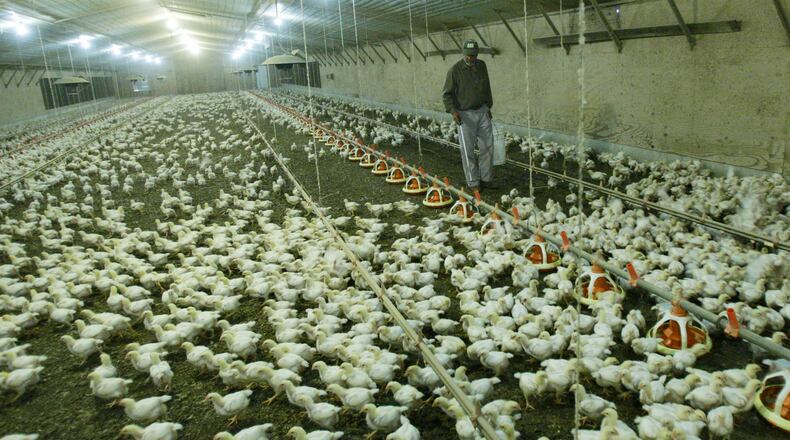A flock of chickens in a Chattooga County commercial farm has tested positive for a low-pathogenic strain of the avian flu, the state Department of Agriculture said Monday.
It is the first confirmation of bird flu in commercial poultry in Georgia.
The entire flock was killed as a precaution, although Agriculture Commissioner Gary Black’s office said no infected animals entered the food chain and this strain of the avian flu does not threaten the food supply.
“Poultry is the top sector of our number one industry, agriculture, and we are committed to protecting the livelihoods of the many farm families that are dependent on it,” Black said . “In order to successfully do that, it is imperative that we continue our efforts of extensive biosecurity.”
Poultry contributes $25.9 billion to Georgia’s economy and accounts for more than 100,000 jobs in the state.
The low-pathogenic strain of the H7 avian flu is less worrisome than the high-pathogenic flu, which is “the one that is deadly to our poultry flock,” Department of Agriculture spokeswoman Julie McPeake said.
This particular strain, however, has the potential to mutate into the high-pathogenic, which is why the state is taking no risks.
“It is a virus,” McPeake said. “It is contagious” to other chickens.
The risk of a human becoming ill with avian influenza during poultry illness incidents is very low, according to the Georgia Department of Health.
A similar strain of the virus was previously found in Alabama, Kentucky and Tennessee. The diagnosis was confirmed by the U.S. Department of Agriculture’s laboratory in Ames, Iowa.
Black had already announced a ban on poultry exhibitions, sales at local fairs and festivals because of the threat of avian flu.
About the Author
Keep Reading
The Latest
Featured



